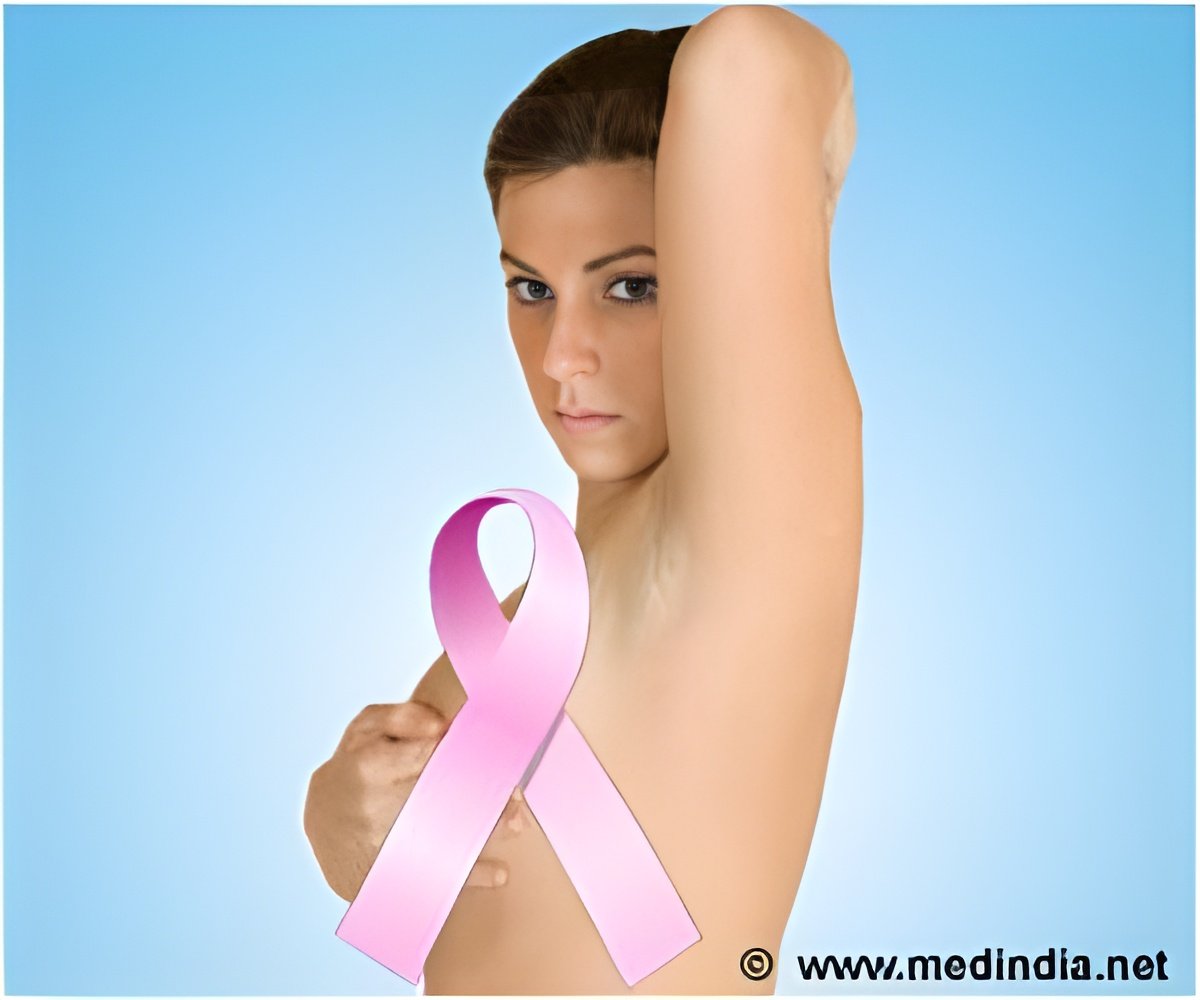Women who are undergoing radiation therapy for breast cancer daily are advised to take antiperspirants, as they are harmless to the skin, reveals a new study.

‘Breast cancer patient's quality-of-life can be improved with the use of antiperspirants during radiation therapy.’





While they found that about eight out of every 10 patients reported their doctors told them not to use antiperspirants and roughly the same number of doctors say they routinely make that recommendation, their study also showed there was no difference in the radiation skin dose absorbed by these patients with or without these deodorants. They published their findings in Radiotherapy and Oncology this month."Going without antiperspirants entirely for a 3-6 week course of radiotherapy can have a negative impact on a patient's quality-of-life," said the study's lead author Brian C. Baumann, MD, who recently completed his residency in Radiation Oncology at Penn and is a member of Penn's Leonard Davis Institute of Health Economics. He is also currently an assistant professor of Radiation Oncology at Washington University in St. Louis. The study tackled two key areas. First, it established that it's still common practice for physicians to advise breast cancer patients to avoid antiperspirants during radiotherapy. Second, it debunked the myth that the use of these antiperspirants increases the amount of radiation the skin receives, thus causing more damage to the skin.
For the first part of the study, researchers utilized OncoLink, an online cancer service dedicated to patient and provider education that is run by Penn's Radiation Oncology unit. They developed a survey to find out what percentage of providers still tell their patients not to use antiperspirants, and what percentage of patients say they received that advice.
Of the 105 doctors and nurses who responded and said they regularly manage radiation dermatitis for their patients, 86 of them (82 percent) said they regularly tell patients not to use antiperspirants during their course of radiation treatment. On the patient side, 92 women responded who said they have received radiotherapy for breast cancer, 73 of whom (79 percent) say their healthcare providers advised them to avoid using deodorant for the duration of their treatment.
"While the sample size of the survey is relatively small, the percentage of patients who received the advice to avoid antiperspirants and the percentage of providers who routinely offer this advice was very similar. We cannot make any conclusions about the exact prevalence of this recommendation, but we think the results strongly suggest that the recommendation remains popular," Baumann said.
Advertisement
"There can be a discrepancy between the ways we measure skin toxicity in clinical trials versus the problems patients report to their healthcare providers," Baumann said. "The current skin toxicity scoring system has important limitations. It does not take pain or itching into account, for example, so it is possible that the studies may have missed a clinically meaningful effect because of the limitations of the measurement tool."
Advertisement
They used three squares of paper: one with nothing on it, one with a thick coating of standard antiperspirant, and one with a thick coating of extra-strength antiperspirant. They placed the squares of paper in the beam's path and measured the absorbed radiation dose with OSLDs.
"We found no significant difference in surface dose with or without antiperspirant," Baumann said.
Baumann's team also moved the beam to four different angles, but found it did not lead to different results.
These antiperspirants also contain aluminum zirconium tetrachlorohydrex glycine, a common metal found in antiperspirants. The standard deodorants contain 15 percent of it, while the extra strength contains 25 percent.
"We specifically wanted to know if the radiation could hit that metal and scatter, sending radiation off target and into other, healthy parts of the skin, but any difference in surface dose we found was within the margin of error," Baumann said.
"This study shows providers should be more liberal in letting patients use antiperspirants during radiation treatment, which may improve patient quality-of-life."
Source-Eurekalert














